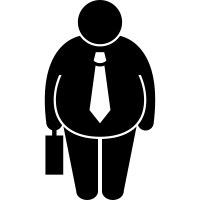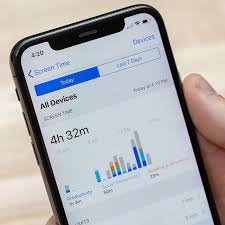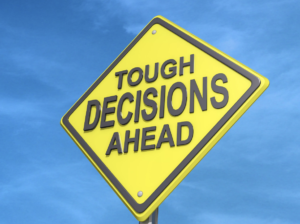by Todd Muffley | Mar 13, 2024 | B2B, Marketing, Strategy

In the B2B marketing space, I preach this all the time…don’t let marketing fool you. Don’t think that marketing is going to be the savior to keep your company from financial ruin or conversely, to provide miraculous growth. Marketing can’t help poorly run organizations, it can’t cover up bad customer service, promote a misguided pricing strategy or help a bad business model. So what good is marketing in a B2B organization?
I believe marketing can support a healthy business in 3 ways. Think of each way as a lever, a marketing lever…which you can pull and push…they move up for more, back for less. Get the picture yet? I think each business has 3 marketing levers they can utilize; Brand, Customers and Prospects.
The first marketing lever is for Brand. Marketing can help by promoting the company brand, both internally and externally. Your brand isn’t what you say it is, it is what your customers say it is…and marketing helps guide that narrative. The same for your employees, where your actions speak louder than words. If you are not thinking about marketing your company brand both internally and externally, you are just plain wrong. At least 20-30% of your marketing budget should be around Brand…where it enables your customers to feel good about being in business with you and demonstrates to your employees that you appreciate them. This takes a strategy and usually a team to execute. It also takes measurement to see if your efforts are trending “up and to the right”.
The second lever is for Customers. Everyone knows that it is FAR less expensive to sell something to someone already buying from you, but so many B2B companies are worried about new growth, that current customer growth is often overlooked. Again, this lever has two areas that can be worked, existing customers and lapsed customers. What are your specific marketing strategies to get your current and lapsed customers to purchase more from you? Again, this should be in the form of a written strategy. If you are reading this right now and can’t “pull out your strategy and point to the section where it discusses “customers/lapsed customers” you might need a new/better CMO, VP of Marketing or Marketing Director…forget might, you do! You should be spending no less than 20% of your budget/efforts here!
Lastly, the 3rd area/lever, the one all B2B companies LOVE to talk about and focus on, Prospects. New growth…fresh meat. I didn’t come up with the quote, but I once heard that your customer is someone else’s prospect. Let that sink in. (Hence why the first two levers are so important). So yes, marketing should bring marketing qualified leads to B2B organizations. Marketing should work alongside sales to ensure that the leads are coming in match the products and services that sales can deliver upon. But make NO MISTAKE…marketing is NOT sales. Just because someone wants a quote or is considering a new vendor doesn’t mean you can shoot off an email and think you have done your job Mr./Mrs. Salesperson. People still buy because of relationships and once marketing has captured their attention and led them to raise their hands as a qualified prospect, it is the job of sales to nurture the relationship and close the deal. It’s then the job of operations, customer service and billing to do their jobs well.
And the cycle continues and it is an endless cycle. Prospects become customers and need the second lever. New employees are hired and managements goals change and need the first lever. The third lever should never be ignored and needs constant attention…and on it goes, a marketing machine supporting the totality of the business.
Are you ready to look at your marketing through the 3 levers? Do you need a written strategy that can support each lever? Do you need a way to measure the effectiveness of each lever to show value in your marketing spend? The answer to all questions should be “yes” and the solution is to hire a strategist to help you get there, possibly me.
by Todd Muffley | Jan 26, 2024 | Marketing
 Every good story has a villain. Think about it, what story doesn’t? From Adam and Eve (serpent) to modern day politics (Trump or Pelosi), every story has that person that you can despise. But think about this, you are rarely the villain of your own story. Hmmmm. Wait. Say that again. Yes, most of us are NEVER the bad guy. Why does that matter and what should we take from that revelation?
Every good story has a villain. Think about it, what story doesn’t? From Adam and Eve (serpent) to modern day politics (Trump or Pelosi), every story has that person that you can despise. But think about this, you are rarely the villain of your own story. Hmmmm. Wait. Say that again. Yes, most of us are NEVER the bad guy. Why does that matter and what should we take from that revelation?
I believe it matters because of the narrative we tell ourselves. We were wronged. It wasn’t my fault. If only <fill in the blank>. I can’t recount a time I listened to someone complain to me where THEY were the evil person (wrongdoer) in the story. Take a second and pause…can you think of a time that you thought to yourself, “I am the villain here”? Probably not.
What should you take away from this new found concept? Mostly just the knowledge that this happens. That there is good and bad and as I like to say, “three sides to every story”. Next time you are talking to someone (or even yourself), make sure your cognoscente of how you paint yourself in the story….after all, each of us has a little villain in us…right?
by Todd Muffley | Apr 26, 2023 | Marketing
So we have this client who is great. They pay well, fun to work with and most of all, they value our work. Life was good. Then, as often happens, comes a new VP of Marketing. This guy is in Chicago, and before zoom calls were the thing, we spoke on the phone a couple times. Something big was brewing and this guy was brought in for a big rebrand project, and we were in line to get the work!
One day he calls me and says he wants me to come to Chicago and meet with him and the owners, as they wanted me to lead a whiteboard session to help with vision and general strategy…AWEOME! I thrive in helping companies create visions for their marketing and who doesn’t want to lead with strategy…I am pumped. Four days before I am to leave, he calls and asks if I can host the meeting. Why sure I said, that’s not a problem…just remember we are a small agency, and I am not in a fancy high rise etc….he said it’s fine, just send over directions and menu’s for lunch…perfect. Game on.
 The day of the meeting comes, we are located in downtown Carmel, in a building built in the early 1900’s…old brick, two story…quaint. I will call the VP Scott, cause that’s his name. Scott comes about 30 minutes early and walks in the door. Sweaty, panting, and exhausted…it looks like the guy has just done a quick mile jog…oh, did I mention Scott tips the scales at over 500 pounds? A big ole boy he was. So we say our hello’s and Scott walks up the stairs to our meeting room and sits on our couch. Now, I don’t know about you, but who the hell thinks that a couch is going to hold a 500 pound person? He sinks in and doesn’t say a word.
The day of the meeting comes, we are located in downtown Carmel, in a building built in the early 1900’s…old brick, two story…quaint. I will call the VP Scott, cause that’s his name. Scott comes about 30 minutes early and walks in the door. Sweaty, panting, and exhausted…it looks like the guy has just done a quick mile jog…oh, did I mention Scott tips the scales at over 500 pounds? A big ole boy he was. So we say our hello’s and Scott walks up the stairs to our meeting room and sits on our couch. Now, I don’t know about you, but who the hell thinks that a couch is going to hold a 500 pound person? He sinks in and doesn’t say a word.
The other guest arrive and we have a great 3 hour meeting. During the time, there is a part where the customer is supposed to go to the whiteboard and do some writing…fun brand stuff. Scott says he will do it from the couch on paper. Uh ok, I thought…sorda weird but let’s roll with it. Lunch comes…he doesn’t touch his food. I think, this is awkward, but maybe he decided to diet…starting today? Our Panera Bread box lunches were great and we went on with the session.
At the end of the day, everyone shook hands and the owners were just elated with my team, our process and the rebranding project, they told me to send Scott the contract tomorrow and to “get started immediately.” No better words have been spoken to me…I slept well that evening.
Contract sent to Scott at 10:30am, signed and emailed back to me by 11:45am…what to do now? I just received the ok for a big six figure project…what we always do, we celebrate…lunch on me! As half the team is out the door, I get a phone call from our main contract, Doreen. She said she has Scott on the phone and they needed to talk about the contract. Scott asks me about our cancellation policy. Then he goes on to tell me to rip up the contract, they will be cancelling it. Lastly, he says, and I quote, “we really don’t need to worry about the cancellation policy do we…I mean, it’s only been 5 minutes.” I am stunned. Of course not I said…they hung up.
Doreen calls me back instantly…I am so sorry she said. I am in shock, knowing I just promised lunch to 20 people to celebrate a sale, and now I have no sale…WTF? She goes on to tell me that Scott was pissed off at me. From having to park 3 blocks away, to walking up our steps to the second floor…to getting stuck (and breaking) my couch. Lastly, she said he was mad about the interactive portion of our whiteboard session…he was just embarrassed…period, and he thought I did this to him. So let me get this straight. I made you 500 pounds? MAYBE you should have told me about your situation and we could have accommodated for it, instead of showing up, meeting you for the first time and realize you were that size.
Doreen apologized profusely, but in the end, we not only lost that contract, but the entire client, as they went with Element 3, another agency just down the road, that has an office in a beautiful high rise building…with an elevator.
by Todd Muffley | Feb 25, 2023 | Marketing
A digital marketer without social media accounts, what could go wrong?
It all happened so fast, I didn’t realize what was happening. I mean, I have been on FB and Instagram for so long, I can’t remember life without them. But through a series of, shall we call them, engagements, with Facebook that lead me to FB jail for 3 days, it started to make me think.
Sometimes in life, you need that jarring moment (dare I say trigger event) to make you wake up. For some it is the death of a loved one, others, a tragic accident or loss of a job. For me, it was Facebook Jail, IMO, treating me unjustly. But not just to blame FB, the thought had been brewing inside my mind, just never to the point of action. We all get these, right…the weekly reminders of how much time we waste. This opened my mind to a series of new questions:
 *What the hell am I doing on social media?
*What the hell am I doing on social media?
*Does my wife think I am cheating on her?
*What am I doing with my life?
*What else could I be doing with my life?
But as fast as the questions would come, they would be dismissed by an update on Instagram or Youtube. Yep, back to the status quo within seconds.
So with my Facebook punishment in effect, I started answering the questions above. 1) I have no clue, but my blood pressure usually goes up. 2) I hope not, I am not. 3) Apparently not a lot, that is going to change though. 4) Anything but spending time on their platforms!
THREE CLOSING THOUGHTS
1) Social media is a “waste void”, a blackhole of unproductively. It siphoned valuable time away from actually building things, like business products & solutions, relationships and my hobbies. The hours I was spending staring at the screen could be used to do actual things I love.
2) Social media is an addictive habit. Ok it’s not as bad as a meth addiction, but if you check your Instagram 83 times a day, you might have a problem. Do YOU have a problem? Can you go without it? For how long? Is what you are seeing online beneficial to your overall mental health? If you are truthful with yourself, I think the answers to those questions will scare you…and they should!
3) They say look around the room and if you don’t see a sucker, you are the sucker. Well, on social media, YOU are the sucker…I mean, product. Facebook and Instagram don’t spend hundreds of millions of dollars each year to give you a “free” platform. They harvest your data. They track you. They make billions advertising to you. Let that sink in. Your data, your photos, your video…all belong to them, and they use that to get rich(er).
So with that, I bid thee a fond farewell to social media (FB, IG and LI). I know you won’t even know I am gone 🙂
by Todd Muffley | Feb 14, 2021 | Marketing
 I attended a seminar by Dr. Paul Schempp, where he explored the science behind making good decisions. I was reviewing my notes from this today, as I always like going back after having let the material digest a while, to extrapolate the main points. His work is based on a 20 year study… here you go.
I attended a seminar by Dr. Paul Schempp, where he explored the science behind making good decisions. I was reviewing my notes from this today, as I always like going back after having let the material digest a while, to extrapolate the main points. His work is based on a 20 year study… here you go.
“People who make good decisions avoid making bad ones.” Seems logical right? I mean if you don’t make bad decisions, then either you aren’t making them or you are making good ones. But how do you avoid making bad ones? I broke this down into two groups, one I call foundational and the other is emotional.
Then foundational areas that trip people up are:
1) Biases – Using things you know, that you favor in persuading you in a direction that if the bias was there, you would not otherwise go
2) Inexperience – This is a hard one! We all want to think we know a lot, but making a decision that you haven’t had to make before is difficult
3) Limited Info – Not having enough facts to make a good decision can lead to making a bad one
4) Over Confidence – Many of us feel like we know what’s best or that we are bold decision makers… which can also lead to bad decisions
Emotional areas that when experienced, you should avoid making decisions:
1) Anger – This is an easy one. Do any good decisions get made when you are truly angry?
2) Fear – Another easy one, but sometimes hard to detect until after the decision was made… the ol’ hindsight thing
3) Sadness – A hard one to recognize. Making decisions when your mental state is out of balance is never good… see a trend?
4) Disgust – This was a fun one for me to think about. Have I ever made a decision when I have been disgusted?
5) Guilt – Another hindsight emotion. In the moment, this maybe hard to detect… be vigilant.
Dr. Schempp’s overall premise is that we make logical, rational decisions when we are calm. He states, “When you are in a state of excitability, your brain does not allow “x” to flow to the frontal part of your brain. Sorry about the “x” thing, I literally could not write fast enough to keep up with him… it is some chemical though 🙂
Lastly, he concluded that “Fight or Flight” moments want you to make a fast decision… which seems logical. Who wants to ponder the many options when being chased by a lion? Recognizing the foundational and emotional areas where bad decisions are made and just eliminating making decisions when in those areas will definitely make you a better decision maker, without even making a decision.
Learn more about Dr. Schempp here – http://www.performancemattersinc.com/
Learn more about how I can help your organization make better marketing decisions here – https://www.think-b.com/c-liason/


 Every good story has a villain. Think about it, what story doesn’t? From Adam and Eve (serpent) to modern day politics (Trump or Pelosi), every story has that person that you can despise. But think about this, you are rarely the villain of your own story. Hmmmm. Wait. Say that again. Yes, most of us are NEVER the bad guy. Why does that matter and what should we take from that revelation?
Every good story has a villain. Think about it, what story doesn’t? From Adam and Eve (serpent) to modern day politics (Trump or Pelosi), every story has that person that you can despise. But think about this, you are rarely the villain of your own story. Hmmmm. Wait. Say that again. Yes, most of us are NEVER the bad guy. Why does that matter and what should we take from that revelation? The day of the meeting comes, we are located in downtown Carmel, in a building built in the early 1900’s…old brick, two story…quaint. I will call the VP Scott, cause that’s his name. Scott comes about 30 minutes early and walks in the door. Sweaty, panting, and exhausted…it looks like the guy has just done a quick mile jog…oh, did I mention Scott tips the scales at over 500 pounds? A big ole boy he was. So we say our hello’s and Scott walks up the stairs to our meeting room and sits on our couch. Now, I don’t know about you, but who the hell thinks that a couch is going to hold a 500 pound person? He sinks in and doesn’t say a word.
The day of the meeting comes, we are located in downtown Carmel, in a building built in the early 1900’s…old brick, two story…quaint. I will call the VP Scott, cause that’s his name. Scott comes about 30 minutes early and walks in the door. Sweaty, panting, and exhausted…it looks like the guy has just done a quick mile jog…oh, did I mention Scott tips the scales at over 500 pounds? A big ole boy he was. So we say our hello’s and Scott walks up the stairs to our meeting room and sits on our couch. Now, I don’t know about you, but who the hell thinks that a couch is going to hold a 500 pound person? He sinks in and doesn’t say a word.
 I attended a seminar by Dr. Paul Schempp, where he explored the science behind making good decisions. I was reviewing my notes from this today, as I always like going back after having let the material digest a while, to extrapolate the main points. His work is based on a 20 year study… here you go.
I attended a seminar by Dr. Paul Schempp, where he explored the science behind making good decisions. I was reviewing my notes from this today, as I always like going back after having let the material digest a while, to extrapolate the main points. His work is based on a 20 year study… here you go.